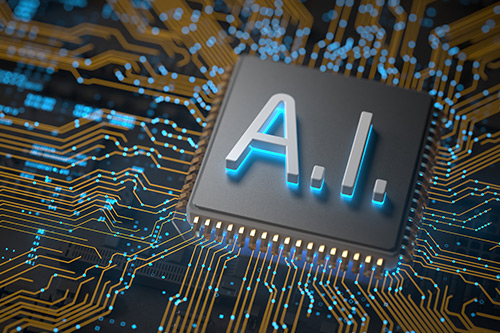
As we’ve beforehand reported about (right here and right here), 2024 has been a historic yr in the USA for state laws geared toward defending workers from hurt arising out of using synthetic intelligence (“AI”) techniques. In Might, Colorado handed the primary US regulation addressing algorithmic discrimination in non-public sector use of AI techniques, imposing obligations on Colorado employers equivalent to disclosing their use of AI to workers and candidates. Final week, Illinois joined the ranks, imposing new obligations on Illinois employers that use AI techniques to make, or which are used to assist in making, employment choices.
Illinois HB 3773: What Employers Have to Know
On August 9, Illinois Governor J.B. Pritzker signed into regulation a number of AI-related payments, together with HB 3773 (“HB 3773” or the “Act”), which amends the Illinois Human Rights Act to guard workers in opposition to discrimination from, and require transparency about, using AI in employment-related choices. (The opposite payments handle non-employment associated points arising from using AI.)
Beneath HB 3773, an employer can’t use AI that has the impact of subjecting workers to discrimination based mostly on a protected class with respect to, e.g., recruitment, hiring, promotion, discharge, self-discipline, or the phrases, privileges, or situations of employment. As well as, the Act prohibits employers from utilizing zip codes as a proxy for protected lessons. Illinois employers should notify workers of using AI to make or help in making employment-related choices. HB 3773 applies to any individual using a number of workers inside Illinois.
The Act defines “synthetic intelligence” as a machine-based system that, for express or implicit aims, infers, from the enter it receives, the way to generate outputs equivalent to predictions, suggestions, or choices that may affect bodily or digital environments. “Synthetic intelligence” can be outlined to incorporate “generative synthetic intelligence,” that means an automatic computing system that, when prompted with human enter, can produce outputs that simulate human-produced content material equivalent to essays, photos, or video.
As with different allegations of employment-related civil rights violations, an worker alleging a violation of the AI provisions in HB 3773 should first file a grievance with the Illinois Division of Human Rights (the “IDHR”). Inside 100 days of the submitting of the cost, the IDHR will decide if there’s substantial proof to assist that the alleged civil rights violation occurred. If not, the cost might be dismissed, however the aggrieved social gathering can search assessment of the dismissal earlier than the Illinois Human Rights Fee (the “Fee”). The IDHR should file a grievance with the Fee when it determines there’s substantial proof that the alleged violation occurred. When a grievance is filed with the Fee, any social gathering could elect to have the declare determined in an Illinois circuit courtroom inside 20 days after receiving service of the grievance. Out there cures embody precise damages, civil penalties starting from $16,000 to $70,000, attorneys’ charges, compliance reporting obligations, and another motion as could also be essential to make the complainant entire.
How Does HB 3773 Differ From Colorado’s Synthetic Intelligence Act?
Colorado’s Synthetic Intelligence Act (“CAIA”), structured extra as a consumer-protection regulation, imposes an obligation of care on creators and deployers of high-risk AI techniques to guard shoppers from any identified or moderately foreseeable dangers of algorithmic discrimination. CAIA doesn’t completely regulate employers. Moderately, high-risk AI techniques embody AI techniques that make, or help in making, employment-related choices. Beneath CAIA, Colorado employers additionally should full annual influence assessments, present numerous notices to workers, and implement a risk-management coverage and program. Considerably much like CAIA is HB 5322, a pending Illinois invoice that features affirmative reporting obligations and annual assessments for “deployers” of AI techniques, which incorporates, however will not be restricted to, employers.
In contrast, HB 3773 amends Illinois’ Human Rights Act to make algorithmic discrimination an actionable civil rights violation. In different phrases, HB 3773 permits Illinois workers to hunt aid underneath the state’s Human Rights Act for discrimination arising from their employer’s use of an AI system. Not like Colorado’s CAIA, the Act doesn’t require affirmative motion from an employer to evaluate, report, or mitigate the dangers arising from using AI techniques.
As we beforehand reported, laws geared toward addressing algorithmic discrimination is pending in a number of states and there are indications that points arising from using AI techniques are also being thought-about on the federal degree.
Colorado and Illinois are at present the one US jurisdictions that regulate an employer’s use of AI techniques. Nevertheless, all US employers ought to pay attention to how regulation on the federal degree and on the state degree may influence their use of an AI system.
Our staff will proceed to watch these and different state employment regulation developments. When you’ve got questions or want steering in your use of an AI system, please contact your Squire Patton Boggs lawyer.

